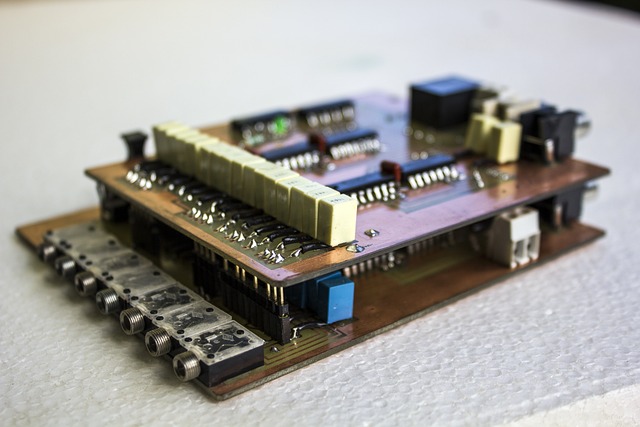Marketing in the Fast Lane: The Power of Automation
In today’s lightning-fast digital world, businesses need to stay ahead of the curve or risk falling behind. Enter marketing automation, the game-changer that has revolutionized how we engage with customers. It’s like a turbocharger for your marketing engine, automating repetitive tasks, personalizing experiences, and driving conversions like never before.
A Historical Journey: From Humble Beginnings to Automation Nirvana
The journey of marketing automation began in the early 2000s with email marketing tools and customer relationship management (CRM) systems. These tools streamlined email campaigns and sales processes, laying the foundation for more sophisticated automation solutions to emerge.
Fast forward to today, and marketing automation has evolved into a powerhouse of AI-powered tools and platforms. These tools automate complex workflows, analyze customer data, and trigger personalized messages based on customer behavior. It’s no wonder why it’s become an indispensable weapon in the marketing arsenal.
The Pulse of Innovation: Current Trends in Marketing Automation
The marketing automation landscape is constantly evolving, with new trends emerging all the time. Here are a few key innovations that are shaping the industry:
- Artificial Intelligence (AI): AI powers advanced analytics, provides predictive insights, and enables personalized experiences at scale.
- Cross-Channel Automation: Automating marketing campaigns across multiple channels (e.g., email, social media, SMS) creates a seamless customer journey.
- Marketing Cloud Integrations: Connecting marketing tools and platforms provides a centralized hub for managing all marketing efforts.
- Hyper-Personalization: AI and data analytics enable businesses to tailor marketing messages based on individual customer preferences and behaviors.
Obstacles on the Road: Challenges and Solutions
As with any technology, marketing automation comes with its own set of challenges, but these obstacles can be overcome with the right solutions:
- Complexity: Marketing automation platforms can be complex to implement and manage, requiring skilled professionals and internal resources. Solution: Choose a platform designed for simplicity and seek professional services if needed.
- Data Management: Effective automation requires accurate and consistent customer data. Solution: Implement data governance practices and integrate automation tools with CRM systems.
- ROI Measurement: It’s crucial to measure the return on investment (ROI) of marketing automation efforts. Solution: Set clear goals, track key performance indicators (KPIs), and analyze data to demonstrate the impact of automation.
Real-World Success: Case Studies and Examples
The effectiveness of marketing automation is best demonstrated through real-world examples:
- Netflix: Netflix uses automation to personalize movie recommendations based on user preferences, resulting in increased viewership and customer satisfaction.
- Airbnb: Airbnb automates email campaigns to welcome new guests, provide trip updates, and offer personalized travel tips, enhancing the guest experience.
Best Practices: Guiding Principles for Marketing Automation Success
To achieve optimal results with marketing automation, follow these best practices:
- Define Clear Goals: Establish specific goals for your marketing automation efforts, such as increasing lead generation or improving customer engagement.
- Segment Your Audience: Divide your customer base into smaller groups based on demographics, behaviors, or preferences to tailor messaging and campaigns.
- Create Compelling Content: Develop high-quality content that resonates with your target audience and encourages engagement.
- Personalize the Experience: Use data to personalize messaging, track individual customer journeys, and offer tailored recommendations.
- Analyze and Optimize: Regularly track campaign performance, identify areas for improvement, and make adjustments to optimize your automation strategies.
Rochester: A Powerhouse in the Automation Revolution
Rochester has played a key role in the growth of marketing automation over the years. The city is home to several leading marketing automation companies, including ClickDimensions, OptinMonster, and TapInfluence. These companies continue to innovate and provide world-class solutions that drive the industry forward.
The Future of Marketing Automation: Predictions and Possibilities
The future of marketing automation is poised for even greater advancements:
- Predictive Analytics: AI and machine learning will predict customer behavior, enabling proactive and personalized marketing campaigns.
- Automation of Creative Tasks: AI will automate the creation of marketing content, such as social media posts and email templates, freeing up marketing teams for more strategic initiatives.
- Omniscient Customer Experiences: Automation will integrate all customer touchpoints, providing a cohesive and seamless experience across channels.
Summary: Embracing Automation for Marketing Success
Marketing automation has transformed the way businesses engage with customers. It empowers marketers to automate repetitive tasks, personalize experiences, and drive conversions with unprecedented efficiency. By overcoming challenges, adhering to best practices, and embracing emerging trends, businesses can harness the power of marketing automation to stay ahead in today’s highly competitive digital landscape.
As the future of automation unfolds, businesses that embrace these technologies will reap the rewards of increased productivity, enhanced customer engagement, and a more prominent competitive edge in the ever-evolving digital marketplace.
Contents
